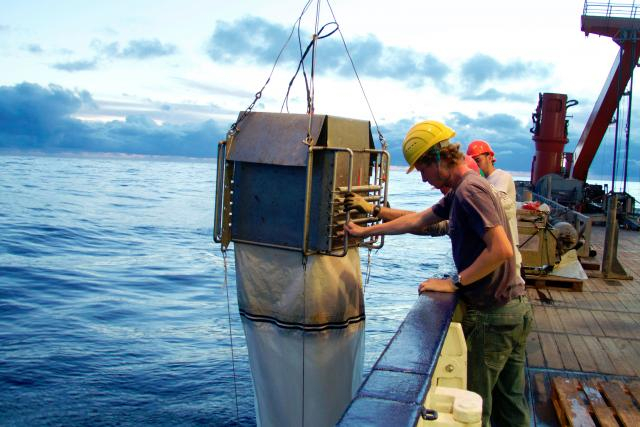09.11.2018 | The Leibniz Centre for Tropical Marine Research (ZMT) is coordinating the new joint project TRAFFIC, which is funded by the Federal Ministry of Education and Research (BMBF) for three years with approximately 1.6 million Euro. Scientists from a total of nine research institutions in Germany and southern Africa will investigate the effects of global environmental changes on the northern and southern upwelling systems of the Benguela Current and the consequences for the coastal fisheries in Namibia and South Africa.
The Benguela upwelling system off the southwestern coast of Africa is one of the world's most productive marine ecosystems. For the people living on the coasts of neighbouring countries Angola, Namibia and South Africa, fishing is a vital source of income. In recent decades, however, landings in the region have declined significantly from around 5 million tonnes at the end of the 1960s to around 1.7 million tonnes today.
"Fishermen in the Benguela region complain about steadily declining yields, but these are not solely due to overfishing, as fisheries management in Namibia and South Africa is quite effective," reports Dr. Werner Ekau, fisheries biologist at ZMT and coordinator of the joint project. "In recent decades, global environmental changes such as rising water temperatures and decreasing oxygen levels have also strongly influenced ecosystem services in the South East Atlantic, with different consequences for the northern and southern Benguela current systems. It is not only fishing that suffers, but also CO2 uptake is affected by these changes".
The researchers in Germany, Namibia and South Africa want to find out more about the reasons for the collapse in fishing yields in the northern Benguela Current and to understand the drastic changes in the southern part of the upwelling area. "The complex processes in the Benguela Current are influenced in particular by the winds, the upwelling and the strength of the water currents," says Ekau.
To identify and comprehend the causes of these developments is not only important for science. It is also crucial for future fisheries management to understand the essential processes and limiting factors in the Benguela upwelling system. The results of the studies should therefore also be incorporated into sustainable ecosystem management in the region.
About the joint research project TRAFFIC (Trophic Transfer Efficiency in the Benguela Current):
Besides ZMT German partners in the TRAFFIC project include the Institute of Marine Ecosystem and Fishery Science (University of Hamburg), the BreMarE Institute (University of Bremen) and the Thünen Institute of Sea Fisheries in Bremerhaven. In South Africa, the University of Cape Town (UCT) and the Ministry of Environmental Affairs (DEA) as well as the Ministry of Agriculture, Forestry and Fisheries (DAFF) are involved in the research. Namibia is represented by the National Museum, Information and Research Centre of the Ministry of Fisheries (NatMirc) and the University of Namibia (UNAM).
The TRAFFIC project is part of SPACES (Science Partnerships for the Assessment of Complex Earth System Processes), the bilateral programme for cooperation in marine research with Southern Africa. At the project’s kick-off event in Polokwane, South Africa, Werner Ekau was also elected one of two scientific spokesmen of the programme.





